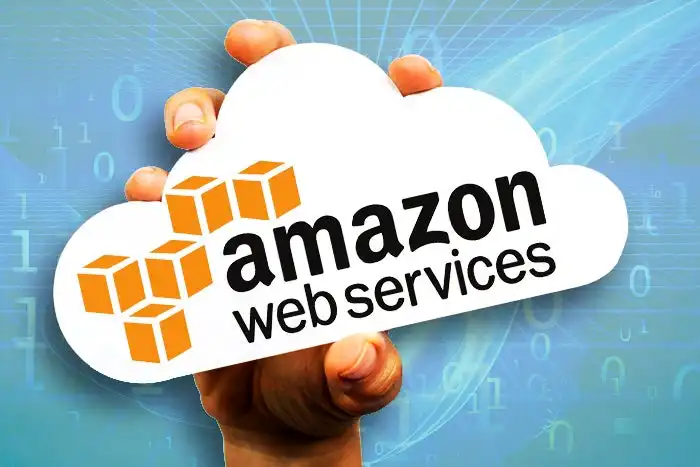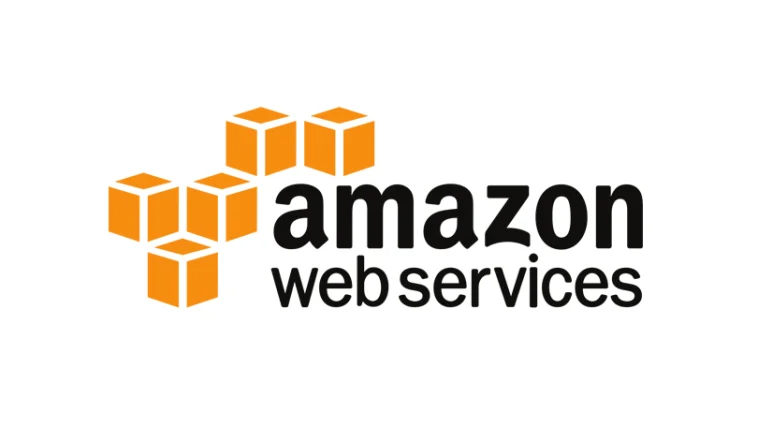Amazon Web Services (AWS), the cloud computing behemoth, has revolutionized the way organizations think about IT infrastructure. From flexible hosting and robust computing power to complex AI and analytics capabilities, AWS provides an expansive suite of services designed to empower businesses and developers alike. This article will guide you through the benefits, pivotal services, pricing models, and how you, as a developer or business owner, can harness the potential of AWS.
Toc
- 1. Efficiency in spending of Amazon Web Services
- 2. Benefits of Amazon Web Services for Developers and Business Owners
- 3. Related articles 01:
- 4. Key Amazon Web Services and Their Applications
- 5. Amazon Web Services Pricing Model and Cost Optimization Tips
- 6. Success Stories of Companies Leveraging Amazon Web Services
- 7. Amazon Web Services Security and Compliance Measures
- 8. How to Get Started with Amazon Web Services
- 9. Related articles 02:
- 10. Conclusion
Amazon Web Services (AWS) is a pivotal component of Amazon.com Inc’s business portfolio, cementing its role as a premier cloud platform. In the second quarter of 2021, AWS achieved a noteworthy $14.8 billion in net sales, constituting slightly over 13% of Amazon’s total net sales. With consistent growth averaging around 30% in recent quarters, AWS has firmly positioned itself as a frontrunner in the cloud computing sector, surpassing competitors like Microsoft Azure.
Efficiency in spending of Amazon Web Services

Jeff Bezos has compared Amazon Web Services to the utility companies of the early 1900s. In the past, factories used to construct their own power plants to generate electricity. However, with the availability of electricity from public utilities, the demand for expensive private electric plants diminished. AWS is actively encouraging companies to transition from physical computing technology to the cloud.
In the past, companies had to construct and manage their own physical storage facilities when they required significant storage capacity. Storing data on a cloud often involves committing to an expensive contract for a significant amount of storage capacity that the company can gradually utilize. Having insufficient storage can lead to disastrous consequences if the business experiences rapid growth, and it can also be costly if the business fails to expand.
Computing power follows the same principle. Companies that encounter a significant increase in traffic would typically need to purchase a substantial amount of power to support their operations during periods of high demand. During off-peak times, such as May for tax accountants, computing power remains idle, resulting in unnecessary expenses for the firm.
Companies only pay for the resources they actually utilize with AWS. There are no initial expenses required to construct a storage system and no need to make usage predictions. AWS customers have the flexibility to utilize the resources they require, with costs automatically adjusted to match their usage.
Given the adaptability of AWS pricing, start-ups and small businesses can readily discern the benefits of utilizing Amazon for their computational needs. AWS proves to be an exceptional platform for launching a business from the ground up, offering a comprehensive array of cloud-based tools that organizations can utilize to initiate their activities. Amazon provides cost-efficient migration services for existing enterprises, ensuring a seamless transition of your infrastructure to AWS.
Benefits of Amazon Web Services for Developers and Business Owners

AWS’s highly scalable and reliable platform facilitates the ease and agility every modern-day business craves. Here’s how AWS benefits you:
- Scalability: Startup or enterprise, AWS provides the flexibility to scale your application’s infrastructure up or down based on demand.
- Cost-Effectiveness: Pay-as-you-go models mean no upfront heavy investments and paying only for what you use.
- Innovative Services: Gain access to the latest in technology services from machine learning to blockchain.
- Global Reach: Deploy applications close to your users with AWS’s extensive global presence, ensuring lower latency and a better user experience.
- Security and Reliability: AWS has robust security measures in place, offering automatic backups, disaster recovery, and high availability.
Key Amazon Web Services and Their Applications
AWS offers a range of key services that serve distinct purposes:
- Compute: Services like EC2 provide scalable computing capacity, enabling you to launch secure virtual servers as per your needs.
- Storage: Solutions such as Amazon S3 and Glacier offer secure, scalable object storage for data archiving and backup.
- Database: AWS provides various database services like RDS and DynamoDB, fit for different database use cases and management.
- AI and Machine Learning: Leverage tools and services to build intelligent solutions, including personalized recommendations or customer engagement.
- Networking and Content Delivery: AWS has a range of networking options, including Virtual Private Cloud (VPC) and Amazon CloudFront for secure content delivery.
- Developer Tools: Services like AWS CodeDeploy and CodeCommit streamline the development process, automating code deployment and version control.
Amazon Web Services Pricing Model and Cost Optimization Tips
Recognizing the complexity of cloud costs, AWS has built a comprehensive pricing model that can be optimized with the following tips:
- Use AWS Cost Explorer to track usage and set budget alerts.
- Take advantage of Reserved Instances for services you plan to use long-term.
- Regularly review and shut down non-essential instances.
- Utilize auto-scaling and load balancing to optimize performance while minimizing costs.
- Use AWS Spot Instances for non-critical, time-flexible workloads.
- Implement cost-saving strategies like data transfer optimization and storage tiering.
- Monitor and adjust resource allocation as needed to prevent wastage.
Success Stories of Companies Leveraging Amazon Web Services

AWS has been used by numerous companies of all sizes and industries to achieve their business goals. Some notable examples include:
- Airbnb: Uses AWS to handle massive amounts of data, providing personalized recommendations and improving user experience.
- Netflix: Relies on AWS for its video streaming service, leveraging its scalability and global reach.
- Unilever: Leveraged AWS to streamline operations and cut costs, resulting in a 60% reduction in IT infrastructure spending.
- Johnson & Johnson: Utilizes AWS to securely store and analyze large amounts of healthcare data for better insights and decision-making.
- Capital One: Migrated its entire IT infrastructure to AWS, allowing for faster delivery of new services and features to customers.
Companies like Netflix and Airbnb are prime examples of businesses effectively utilizing AWS’s capabilities. They’ve leveraged AWS to handle massive data workloads and streamline operations, demonstrating the scalability and reliability that AWS promises. These companies have also effectively implemented cost optimization strategies, allowing them to maximize the value and efficiency of their cloud infrastructure. Other notable companies using AWS include Uber, Lyft, and Spotify. Overall, these success stories showcase the power and potential that AWS offers for businesses of all sizes.
Amazon Web Services Security and Compliance Measures
As a leading cloud computing provider, AWS places a strong emphasis on security and compliance. It offers a wide range of security tools and features to help businesses protect their data and applications. These include:
- Identity Access Management (IAM): Allows for granular control over user permissions and access levels.
- Encryption: Provides multiple encryption options to protect data at rest or in transit.
- Network security: Offers customizable firewall settings and network access controls.
- Compliance certifications: AWS has obtained numerous compliance certifications, including HIPAA, GDPR, and ISO 27001.
- Monitoring and logging: Provides tools for real-time monitoring of resources and tracking of user activity.
These measures help ensure the confidentiality, integrity, and availability of data on AWS’s cloud platform, giving businesses peace of mind when it comes to security.
Security on AWS is paramount. AWS adheres to the highest standards and offers tools like AWS Identity and Access Management (IAM) to manage access to services securely. Compliance certifications like GDPR, HIPAA, and SOC 1 & 2 are also part of AWS’s commitment to security. Additionally, AWS offers various security features such as encryption and network firewalls to protect against potential threats. Businesses can feel confident in the security of their data when utilizing AWS services.
How to Get Started with Amazon Web Services

1. https://ngungtaonghiep.com/mmoga-cloud-computing-trends-to-watch-in-us-2024-1
3. https://ngungtaonghiep.com/mmoga-elevate-your-websites-with-free-web-hosting-services-1
If you are new to AWS or looking to expand your knowledge and expertise, there are several resources available to help guide you through the process. Here are a few recommended guides for developers and business owners.
Starting with AWS
- Setting up an AWS account.
- Navigating the AWS Management Console.
- Experimenting with key services using the AWS Free Tier.
- Exploring resources and tutorials in the AWS Training and Certification portal.
For developers, the AWS Developer Center offers guidance on integrating and deploying applications in the AWS cloud. Business owners can also benefit from resources like the AWS Business Essentials course and the AWS Cloud Economics report, which provides insights on cost optimization strategies.
AWS also offers a variety of support options, including free basic support for all customers. For more advanced needs, businesses can choose from various support plans to fit their specific requirements.
Recommendations when we start with AWS
- AWS Developer Guides: These guides provide step-by-step instructions on how to set up various AWS services and features. They cover topics such as managing data storage, building applications, and securing data on AWS.
- AWS Business Guides: These guides are designed for business owners and provide a high-level overview of how to use AWS services to achieve specific business goals. They cover topics such as cost optimization, disaster recovery, and compliance.
- Online Training Courses: AWS offers a variety of online training courses for both developers and business owners. These courses range from introductory level to advanced and cover a wide range of topics, including security, data analytics, and machine learning.
- AWS Documentation: The AWS documentation is a comprehensive resource for all AWS services. It provides detailed information on how to use each service and offers best practices and troubleshooting tips.
- Community Forums: The AWS community forums are a great place to connect with other developers and business owners using AWS. You can ask questions, share ideas, and learn from others’ experiences.
- AWS Partners: If you need assistance with setting up or managing your AWS environment, consider working with an AWS partner. These companies are trained and certified by AWS and can provide expert guidance and support.
With these resources, getting started with AWS can be a smooth and manageable process. It’s important to keep in mind that AWS is constantly evolving and new services are being added regularly. In order to stay up-to-date, it’s recommended to regularly check for updates and continue learning through the available resources.
Additionally, as you become more familiar with AWS, it may be helpful to explore advanced topics such as automation, scalability, and cost optimization.
Conclusion
Looking into the future, AWS continues to be an essential cloud services provider, encouraging innovation and pushing the boundaries of what’s possible in tech. AWS has become a central tool for driving competitive advantage and should be an integral part of the digital strategy for every developer and business owner.
Harness the power of AWS to innovate, scale, and lead in the modern business environment. Whether you’re a solo developer or running an enterprise, the sky is indeed the limit with Amazon Web Services at your command. So, continue exploring and leveraging the vast array of services offered by AWS to stay ahead of the curve in today’s fast-paced digital world. With continuous updates, new features, and a thriving community, AWS is constantly evolving to meet the changing needs of businesses around the globe. Don’t get left behind – get started with AWS today!
















